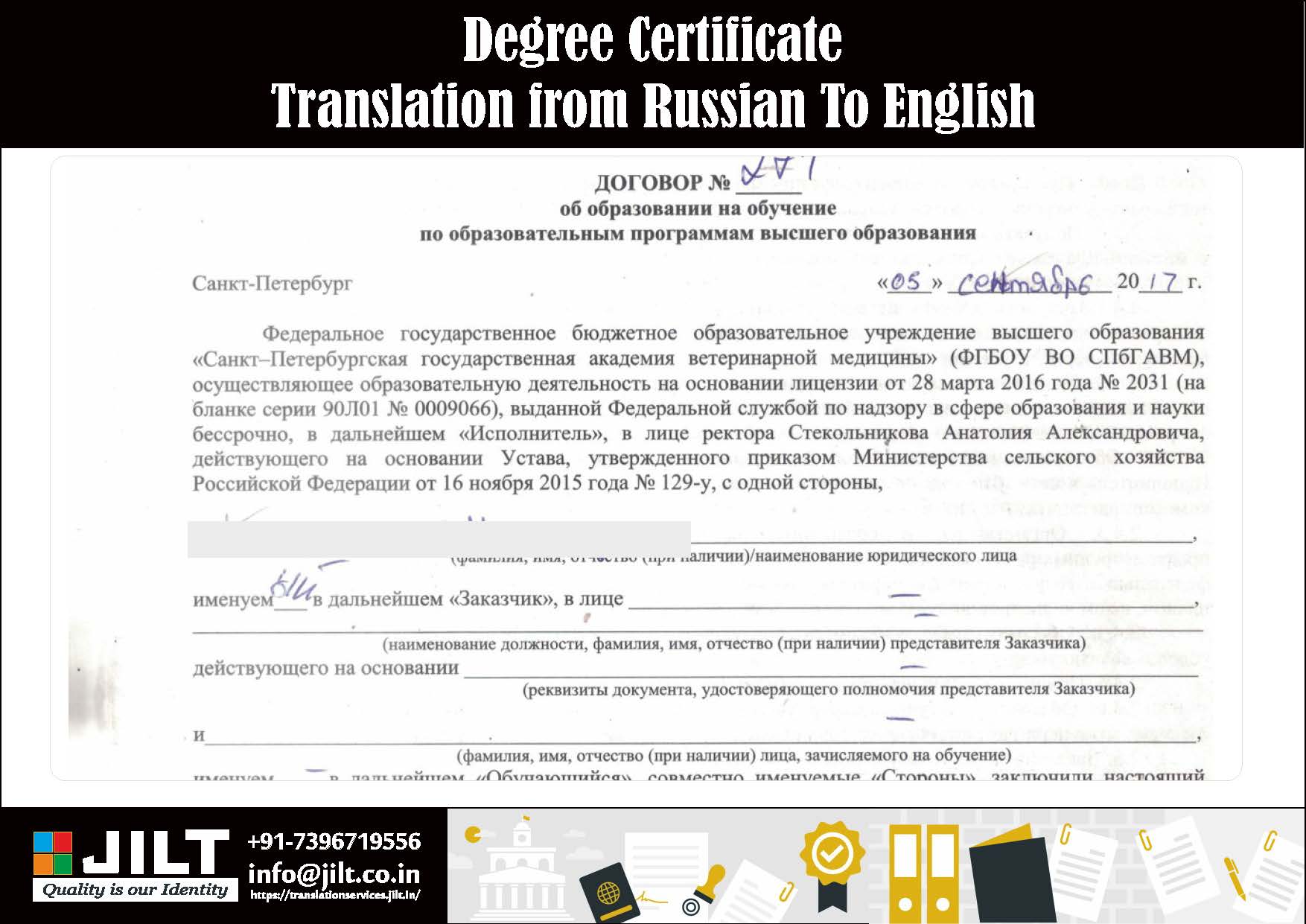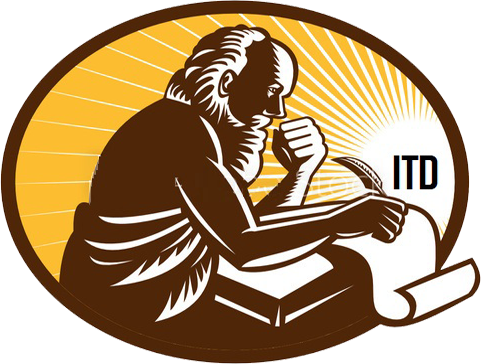
UNLOCKING OPPORTUNITIES: THE IMPORTANCE OF DEGREE CERTIFICATE TRANSLATION
by Dr. Abu Mazhar Khalid Siddique - November 27, 2023
In a globalized world where borders are increasingly porous, the significance of a degree certificate transcends national boundaries. Possession of a recognized academic credential is not only a testament to one's educational achievements but also a key that unlocks a plethora of opportunities worldwide. However, the true value of this document becomes fully realized when it undergoes the crucial process of translation, facilitating seamless international recognition.
The Gateway to Opportunities
A degree certificate serves as an essential passport to career opportunities, higher education pursuits, and professional growth. Whether it's pursuing advanced studies abroad, applying for a job in an international market, or seeking professional licensure in another country, the degree certificate acts as a tangible validation of academic accomplishments. Its importance lies not only in the content it carries, but also in the standardized format that enables institutions and employers globally to quickly assess an individual's educational background.
Crossing Linguistic Barriers
The need for degree-certificate translation becomes apparent in the face of linguistic diversity. As the world is home to numerous languages and dialects, a certificate issued in one language may not be readily understood or accepted in another. Imagine a student from China aspiring to pursue a master's program in the United States. Without an English translation of their Chinese degree certificate, navigating the American academic landscape and the job market can be daunting.
Accuracy Is Paramount
The translation process itself is a delicate art that requires a meticulous approach. Accuracy is paramount, as a minor error in translation can lead to significant misunderstandings. Degree certificates are not just about listing courses and grades; they often contain specialized academic language and institutional terms that demand a translator with expertise in both the source and target languages. Whether translating from French to English, Spanish to Mandarin, or any other language pair, the translator must capture the essence and technicalities of the original document.
Navigating Legal and Cultural Nuances
Degree certificates frequently carry legal weight, especially when seeking employment or further education in a foreign country. Understanding the legal implications of translated documents is crucial. Different countries may have specific requirements for translating certificates, necessitating the involvement of certified translators or notaries. Additionally, cultural nuances must be taken into account to ensure that the translated content is not only linguistically accurate, but also culturally sensitive, reflecting the original intent of the document.
Facilitating Global Education
One of the primary reasons individuals seek degree certificate translation is to pursue educational opportunities in foreign institutions. International students, with qualifications obtained in their native language, must provide translated certificates during the application process. This ensures that admissions committees can accurately assess academic achievements and place them in the context of the institution's admission criteria. The translation process bridges the gap, enabling universities worldwide to evaluate candidates fairly and efficiently.
Enhancing Employability
In the global job market, employers seek candidates with diverse backgrounds and skill sets. A well-translated degree certificate not only showcases academic accomplishments but also reflects an individual's adaptability and willingness to engage in a multicultural environment. This is particularly relevant in industries where cross-border collaboration is the norm. An accurately translated certificate provides employers with the confidence that the candidate possesses the necessary qualifications and can contribute effectively to the workplace.
Overcoming Bureaucratic Hurdles
Degree certificate translation is not just about language; it often involves navigating bureaucratic requirements. Different countries may have specific procedures for accepting translated documents, and understanding these requirements is crucial to avoid unnecessary delays and complications. Some countries may require notarized translations, while others may specify the need for certified translators or specific translation agencies. Navigating these bureaucratic nuances is part of the translation process and ensures that the translated document holds legal weight in the target country.
The Role of Technology
In the digital age, technology plays a significant role in streamlining the translation process. Translation software and artificial intelligence tools have become invaluable aids for translators, helping them maintain accuracy and efficiency. While these tools can assist in the initial translation process, human expertise remains indispensable for ensuring the nuances, context, and cultural intricacies are accurately captured.
Ensuring Quality and Reliability
The proliferation of translation services has made it easier for individuals to access translation assistance. However, ensuring the quality and reliability of the translation is paramount. Opting for professional translation services or certified translators with expertise in the specific field of study ensures that the translated document meets the highest standards. Institutions, employers, and official bodies are more likely to recognize and accept translations that come from reputable sources.
In a world where mobility and globalization are the norm, the importance of a degree certificate cannot be overstated. It serves as a key to unlocking opportunities and realizing academic and professional aspirations. However, to fully harness the potential of a degree certificate on an international scale, the process of translation becomes crucial. Accurate translation not only facilitates understanding but also ensures that the document aligns with the legal and cultural norms of the target environment.
Whether for education, employment, or licensure, the translated degree certificate acts as a bridge, connecting individuals to opportunities across borders. As individuals embark on their academic and professional journeys, the careful consideration and investment in the translation process become instrumental in shaping a future that knows no linguistic or geographical boundaries.
Our organization employs native-speaking translators who can provide certified translation services in any language. We provide translation services in English (Urdu), Arabic (Spanish), German (French), Persian (Iranian), French (Italian), Japanese (Korean), Russian, and any other Indian or local language. Expert proofreaders at our company will inspect the translation. We also provide a courier service to deliver completed documents to our clients.
- Also Read :- Experience Certificate Translation Services
- Also Read :- THE VITAL ROLE OF BIRTH CERTIFICATES: TRANSLATION FROM TAMIL TO GERMAN
- Also Read :- Market Study for Multilingual SEO
- Also Read :- INTERNATIONAL TRANSLATION DAY
- Also Read :- Memorandum Of Association Documents Translation Services
- Also Read :- Legal Documents Translation
- Also Read :- Insurance Certificate Translation Services
- Also Read :- IMPORTANCE OF CONSECUTIVE INTERPRETATION
- Also Read :- Passport Missing Report Translated from English into Arabic language
- Also Read :- Vaccination certificate translations (JILT - Certified Translation Services)
Search
Categories
Archives by Month
Popular Blog
QUICK TRANSLATION QUOTE
Need help with a translation?
Get in touch with us
Whether you have a specific project you want to discuss, need a translation quote or simply want to discuss your requirements, do not hesitate to get in touch with us.











Social Networks